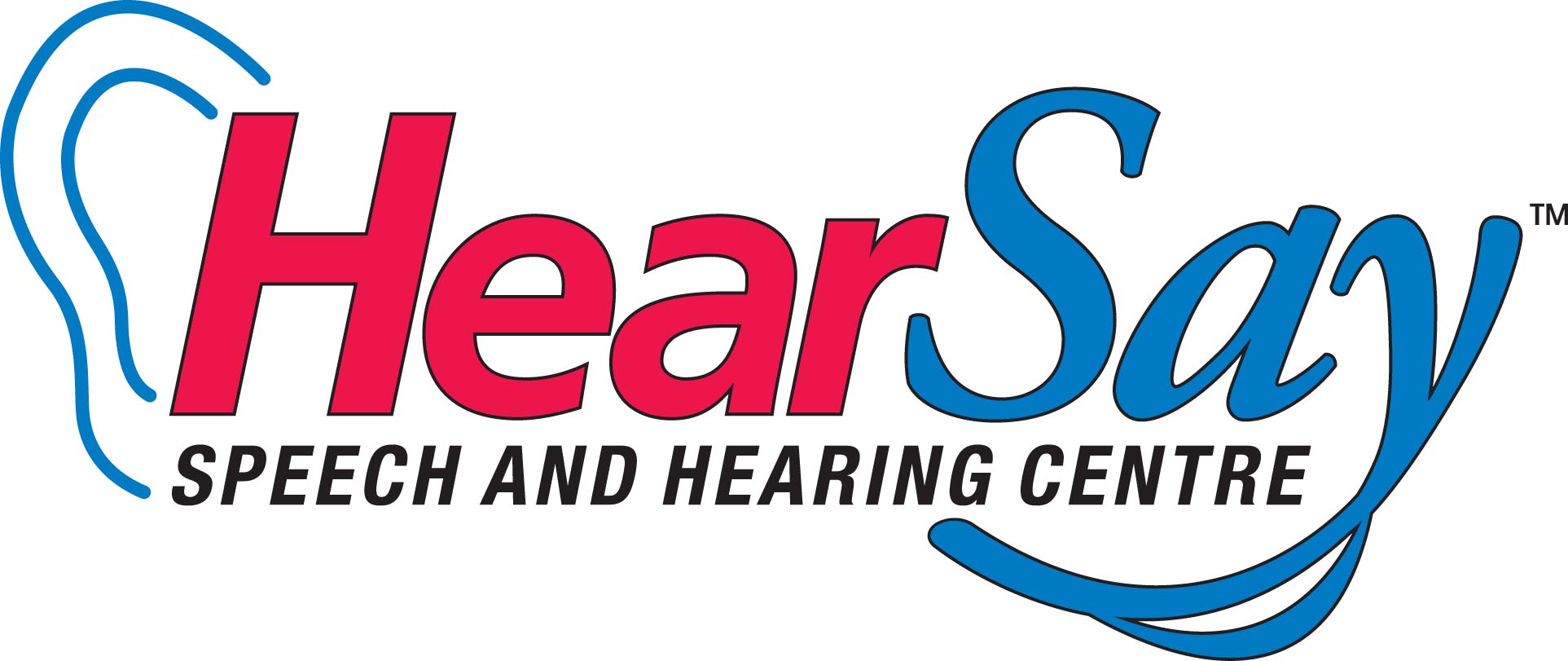
A recommendation of auditory processing testing is typically made for individuals (of any age) who struggle with focus, attention and distractedness, particularly in the presence of background noise.
Auditory processing disorder (APD) often co-occurs with other challenges such as difficulties in phonemic awareness, reading/literacy, language and language processing, sensory and visual processing and reading comprehension.
The collaboration of the Audiologist with the Speech-Language Pathologist, Occupational Therapist, Literacy Specialist and Psychologist are essential to develop a full intervention plan to address all necessary components.
At HearSay, we proudly offer services in audiology, speech-language pathology, occupational therapy, physiotherapy, literacy and psychology to collaborate on all relevant areas of need.
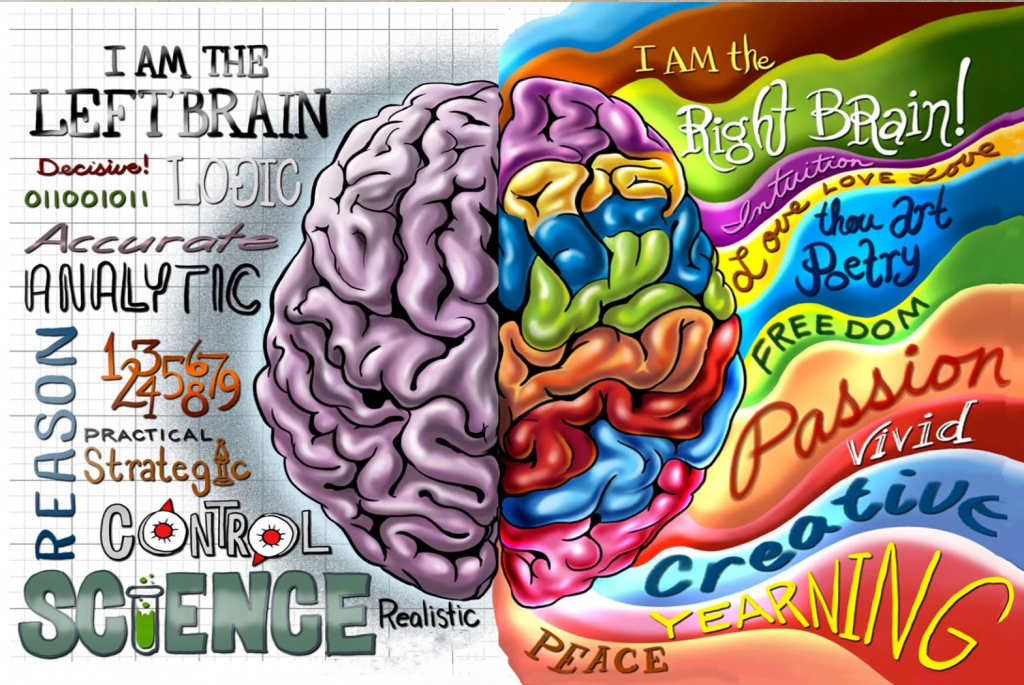
Auditory Processing is described as what the brain does with what the ear hears.
A breakdown in this process is called an auditory processing disorder.
Previously referred to as Central Auditory Processing Disorder (CAPD) due to the thought that it affected the central part of the brain. Research has since indicated that auditory processing disorders affect many parts of the brain.
Less than 2% of Audiologists do auditory processing testing world-wide. Despite a normal hearing test with normal hearing thresholds, only the peripheral hearing (the structures of the ear) are tested using a conventional hearing test.
Psychoacoustic testing must be done in order to determine what the brain’s capacity is for actual listening and processing. This is not typically completed as part of a standard hearing test appointment.
What’s The Problem?
If you or your child are struggling with attention, focus, are a daydreamer, or miss instructions (at home, in the classroom, or in the workplace), struggle with reading and/or are exhausted after a day spent listening, an auditory processing test is warranted.
HearSay has several levels of testing from a basic screening test alongside an intake questionnaire, to a full formal evaluation with the option of providing a full comprehensive report with extensive recommendations and intervention strategies to address processing difficulties.
At HearSay we are also able to differentiate disorders by way of our many screening tools which help distinguish Attention Deficit Disorder (ADD/ADHD) as compared to Auditory Processing Disorder (APD), Specific Learning Disorder (i.e., Dyslexia) and/or Language Processing Disorder.
Take our online screener NOW to help differentiate difficulties.
Our intake and screening appointments offer the opportunity to delve into a wide range of areas that help tease out the elements that are contributing to the difficulties and challenges you and/or your child are experiencing. This then aids in developing the roadmap needed in order to determine which assessments are most relevant which is both cost-effective and time-saving. By the end of the intake appointment and screening process, you will have a clear idea of which assessments to pursue, if any.
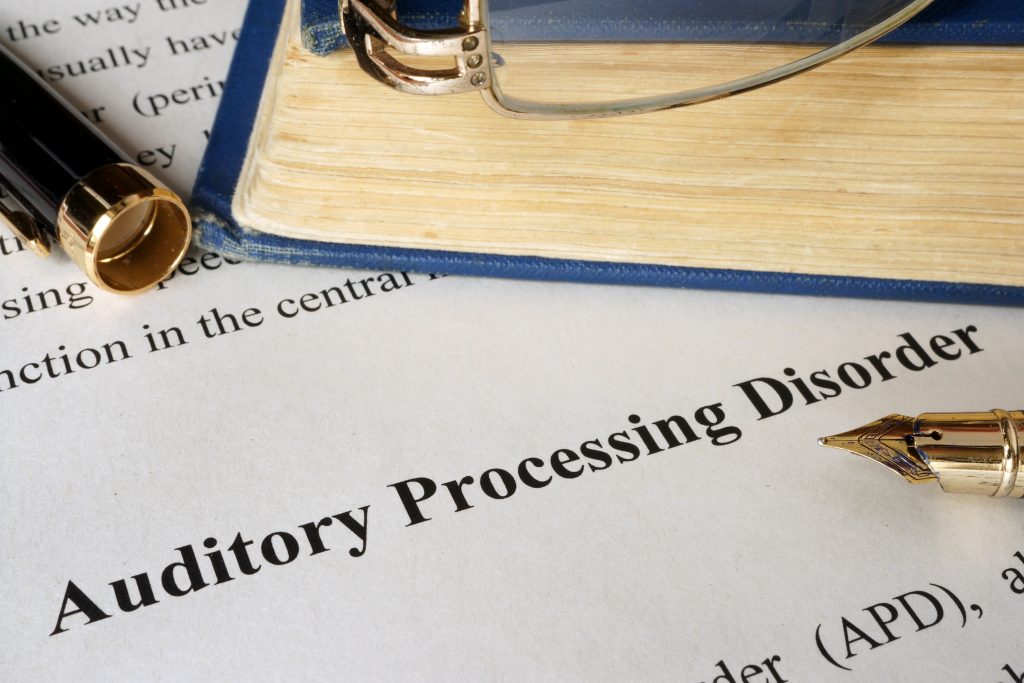
How Can We Help?
HearSay has become known for testing of both auditory processing and language processing. One of our clinicians is a dually certified Speech-Language Pathologist and Audiologist. As a result, both areas of difficulty can be analyzed carefully and thoroughly to determine how these integrate or are causing challenges in academics and listening skills, attention, and learning beginning reading skills.
What Can You Do?
Call us (905) 875-3345 (ext 1 for audiology services) to schedule an intake screening and let our specialized team help determine whether there are any auditory processing difficulties and discuss next steps if needed. Our assessments can be completed on children as young as age 3 as well as children, teens and adults.
Cost
Speech / Audiology Assessments and Therapy are often covered by extended benefits, please feel free to ask us for more information or contact your benefits provider.
Symptoms of Auditory Processing Disorder
APD can affect people in many ways. An individual with APD may appear to have a hearing impairment, but this isn’t usually the case and testing often shows their hearing is normal.

APD Can Affect the Ability To:
- Understand speech – particularly if there is background noise, more than one person speaking, the person is speaking quickly, or the sound quality is poor
- Distinguish similar sounds from one another – such as “shoulder versus soldier” or “cold versus called”
- Concentrate in the presence of background noise – this can lead to difficulty understanding and remembering instructions, as well as difficulty speaking clearly and problems with reading and spelling
- Enjoy music and pick out a rhythm
“When I was a kid I thought L-M-N-O-P was a word in the middle of the alphabet.”
-27 year old adult identified with APD
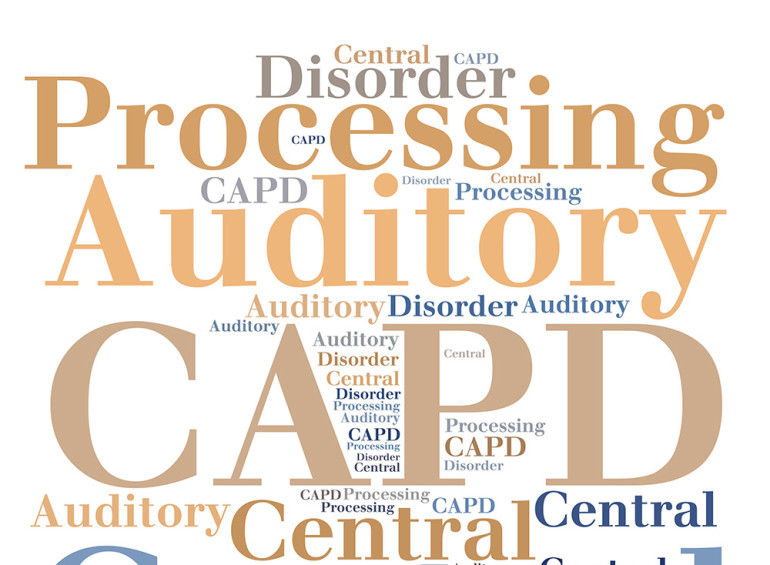
Common Sound Sequencing and Omission Errors in Words:
- ‘renember’
- ‘hopspital’
- ‘fustrated’
Many people with APD struggle with focusing academically and in the workplace, which can lead to frustration. Difficulties with reading and written language often accompany APD. It is also most commonly misdiagnosed as ADHD. Listening can be exhausting due to the difficulty paying attention.
Checklist for Processing Difficulties
Auditory Processing
- Male
- Normal pure tone hearing
- Difficulty following oral directions; inconsistent responses
- Short auditory attention span; fatigues easily
- Poor short-term and long-term memory
- Daydreams; appears not to listen
- Difficulty hearing with background noise
- Difficulty localizing sounds
- Academic and/or speech-language problems
- Disruptive behaviours; impulsive, frustrated
- Requests repetition; asks ‘huh?’
- History of ear infections
Language Processing
- Word retrieval problems
- Neutral, generic language
- Misuse of words with a similar phonetic structure
- Creative, original language; describes or circumlocutes
- Delayed responses; uses fillers
- Frequently answers ‘I don’t know’ or ‘I forgot’
- Repeats or rehearses comments
- Difficulty localizing sounds
- Inconsistency in learning; needs review
- Recognizes errors but can’t correct them
- Incomplete sentences or thoughts
- Pragmatic problems; disruptive behaviour
- Age-appropriate IQ and vocabulary; academic deficits; learning disabled
Fisher’s Auditory Problems Checklist
APD vs Language Checklist
APD the Brain and the Central Nervous System
Auditory processing disorder (APD) is a term for a variety of disorders that affect the way the brain processes auditory information. Individuals with APD usually have normal structure and function of the outer, middle, and inner ear (peripheral hearing). However, they cannot process the information they hear in the same way as others do, which leads to difficulties in recognizing and interpreting sounds, especially the sounds composing speech. These difficulties arise from dysfunction in the central nervous system.
It can affect both children and adults. Cooper and Gates (1991) estimated the prevalence of adult APD to be 10 to 20%. It has been reported that males are twice as likely to be affected by the disorder as females, and that prevalence is higher in the elderly and increases with age.
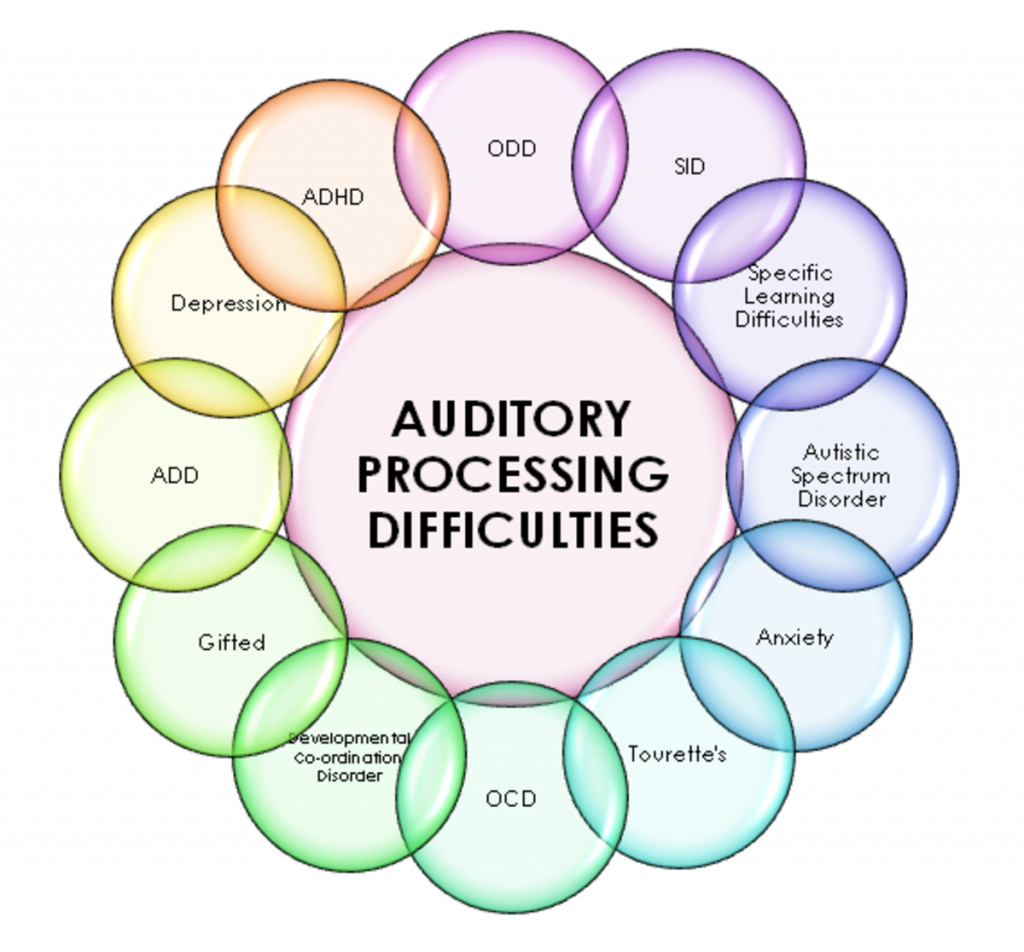
Intervention for APD
There are 3 broad categories for intervention:
Language & Compensatory Strategies
- Reduce background noise
- Acoustic modifications (carpet, curtains, bookcases)
- Note-taking aid
- Attention prompts and cueing
- Eye contact
- Comprehension checks
- Visual aids
- Listening breaks
- Pre-teaching of new concepts, vocabulary
Intervention/Treatment
- Auditory skills training
- One-on-one therapy with a clinician
- Phonemic awareness training
- Phoneme discrimination
- Listening in noise training
- Pitch pattern awareness
- Temporal resolution training
- Binaural integration training
- Localization/lateralization of sound
- Dichotic listening training – amblyaudia
- ‘Ear advantage’ training
Amplification/Technology
- Personal FM system
- Soundfield system
- Low-gain hearing aids (LGHAs)
- Assistive listening devices
- Laptop/tablet with word processing capabilities
- Custom ear filters and noise cancelling ear pieces
APD – A Guide for Caregivers
APD – A Guide for Educators
Support System
Support groups – both online and in person – can help parents and adults connect with people who are experiencing similar difficulties and give ideas of treatment or accommodations that have helped. Feel free to join our social media page on Facebook in order to collaborate with others experiencing APD.
www.facebook.com/groups/apdcanada/
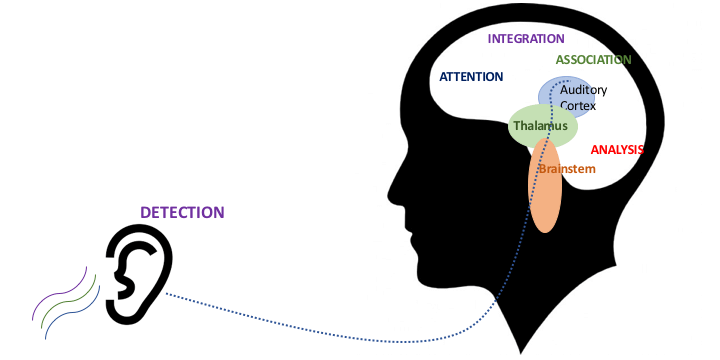
Support groups – both online and in person – can help parents and adults connect with people who are experiencing similar difficulties and give ideas of treatment or accommodations that have helped. Feel free to join our social media page on Facebook in order to collaborate with others experiencing APD.
www.facebook.com/groups/apdcanada/
